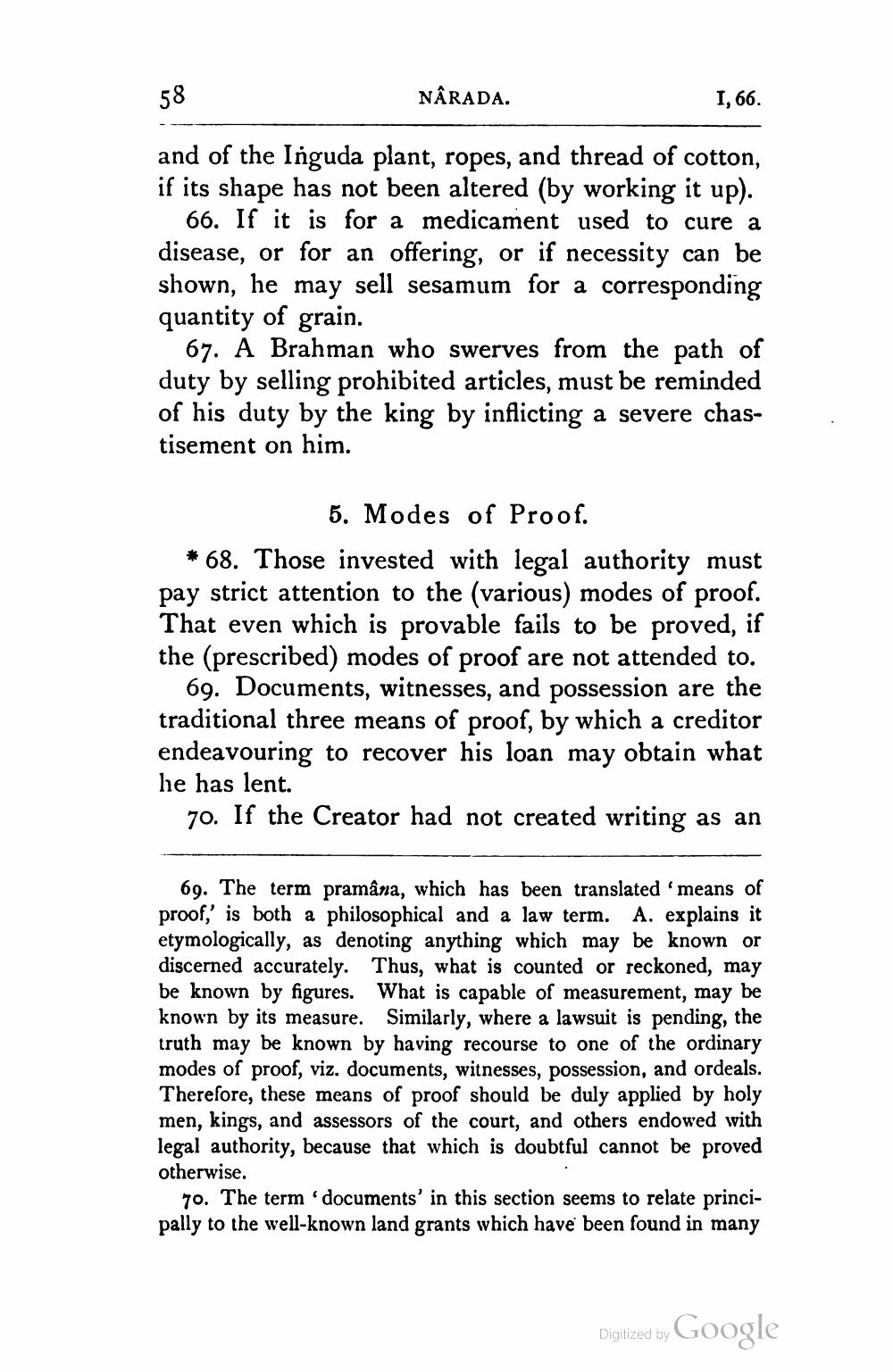________________
58
NARADA.
1, 66.
and of the Inguda plant, ropes, and thread of cotton, if its shape has not been altered (by working it up).
66. If it is for a medicament used to cure a disease, or for an offering, or if necessity can be shown, he may sell sesamum for a corresponding quantity of grain.
67. A Brahman who swerves from the path of duty by selling prohibited articles, must be reminded of his duty by the king by inflicting a severe chastisement on him.
5. Modes of Proof. *68. Those invested with legal authority must pay strict attention to the (various) modes of proof. That even which is provable fails to be proved, if the (prescribed) modes of proof are not attended to.
69. Documents, witnesses, and possession are the traditional three means of proof, by which a creditor endeavouring to recover his loan may obtain what he has lent.
70. If the Creator had not created writing as an
69. The term pramâna, which has been translated 'means of proof,' is both a philosophical and a law term. A. explains it etymologically, as denoting anything which may be known or discerned accurately. Thus, what is counted or reckoned, may be known by figures. What is capable of measurement, may be known by its measure. Similarly, where a lawsuit is pending, the truth may be known by having recourse to one of the ordinary modes of proof, viz. documents, witnesses, possession, and ordeals. Therefore, these means of proof should be duly applied by holy men, kings, and assessors of the court, and others endowed with legal authority, because that which is doubtful cannot be proved otherwise.
70. The term 'documents' in this section seems to relate principally to the well-known land grants which have been found in many
Digitized by Google




